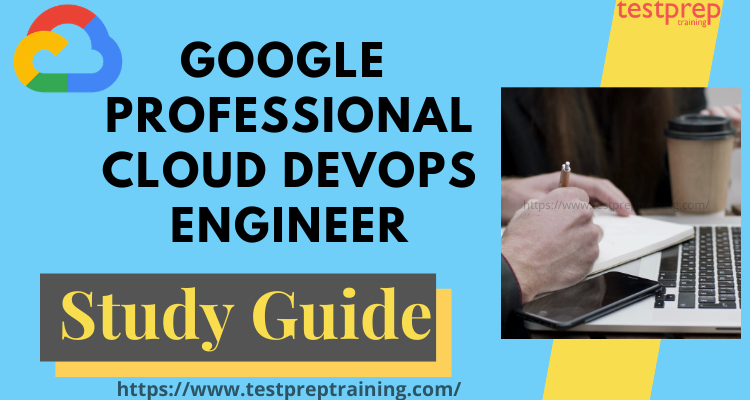Google Cloud Platform has established itself as one of the most well-known cloud platforms. It has effectively managed to deliver high competency to the previously existing cloud platform giants – Amazon Web Services and Microsoft Azure – in a short period of time. The Google Cloud platform has attained the greatest level of recognition, and the Google Professional Cloud DevOps Engineer certification is highly recommended for its applications in analytics, machine learning, and cloud-native computing. It is now regarded as the Best Cloud Engineer Certification.
Key skills to become Google Professional Cloud Devops Engineer (GCP):
The key skills that this exam focuses on are –
- Firstly, applying site reliability engineering principles to any service
- Secondly, optimizing service performance
- Then, implementing service monitoring strategies
- Also, building and implementing CI/CD pipelines for a service
- Laslty, managing service incidents
Exam Target Audience:
The Google Cloud Platform Professional Cloud Devops Engineer will be in charge of ensuring that development operations are efficient and that service dependability and delivery speed are balanced. As a result, you should be able to construct software delivery pipelines, deploy and monitor services, and manage and learn from issues using Google Cloud Platform. This exam is aimed mostly at these individuals :
- To begin with, On-premises IT system administrators
- Then, Cloud solution architects and application developers
- Subsequently, DevOps professionals with industry experience
- Further, Aspiring DevOps professionals with limited GCP experience
- Also, On-premise system engineers
Study Guide For Google Professional Cloud DevOps Engineer Exam
To pass any certification test, you must choose the finest exam preparation method. When it comes to the Google Professional Cloud DevOps Engineer Exam, making the proper decision is critical if you want to have a successful and satisfying career on the Google cloud platform. So let’s get started with the planning.
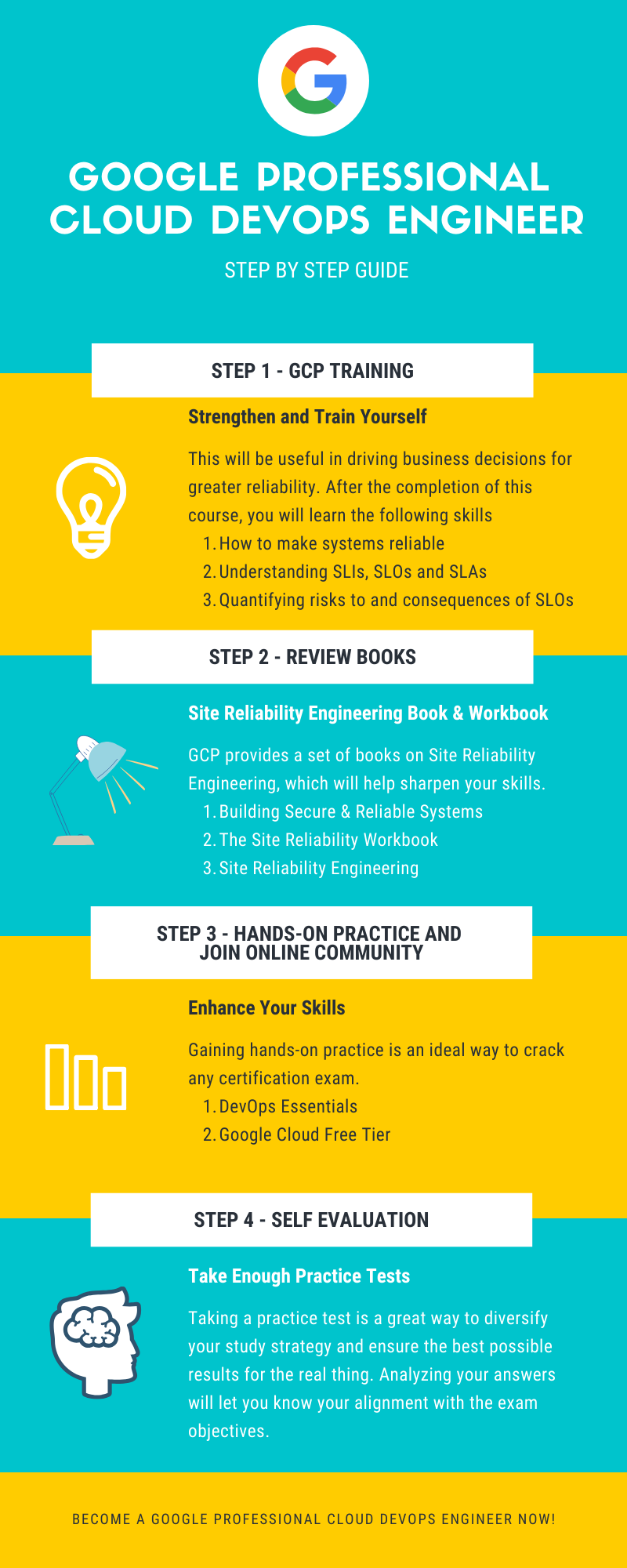
1. Review the exam guide
Before you start studying for the Google Professional Cloud DevOps Engineer Exam, you should familiarise yourself with the exam’s primary objectives. GCP gives a well-structured test guide to applicants pursuing certification. Knowing the exam objectives is critical for gaining an understanding of the exam. To have a better understanding of the test guide, go to the Official website of GCP. A careful examination of the test guide will enable you to better align yourself with the exam’s main objectives. As a result, you will be able to achieve the necessary command to obtain your desired certification. The Google Professional Cloud DevOps Engineer Course covers the following primary domains:
Topic 1: Bootstrapping a Google Cloud organization for DevOps (17%)
1.1 Designing the overall resource hierarchy for an organization. Considerations include:
- Projects and folders (Google Documentation: Creating and managing Folders)
- Shared networking (Google Documentation: Shared VPC)
- Identity and Access Management (IAM) roles and organization-level policies (Google Documentation: IAM overview)
- Creating and managing service accounts (Google Documentation: Create a service account)
1.2 Managing infrastructure as code. Considerations include:
- Infrastructure as code tooling (e.g., Cloud Foundation Toolkit, Config Connector, Terraform, Helm) (Google Documentation: Config Connector overview, Infrastructure as Code on Google Cloud)
- Making infrastructure changes using Google-recommended practices and infrastructure as code blueprints (Google Documentation: Using Recommendations for Infrastructure as Code)
- Immutable architecture (Google Documentation: Best practices for operating containers)
1.3 Designing a CI/CD architecture stack in Google Cloud, hybrid, and multi-cloud environments. Considerations include:
- CI with Cloud Build (Google Documentation: Cloud Build, Cloud Build documentation)
- CD with Google Cloud Deploy (Google Documentation: Cloud Build documentation)
- Widely used third-party tooling (e.g., Jenkins, Git, ArgoCD, Packer)
- Security of CI/CD tooling (Google Documentation: Building a secure CI/CD pipeline using Google Cloud built-in services)
1.4 Managing multiple environments (e.g., staging, production). Considerations include:
- Determining the number of environments and their purpose (Google Documentation: Create Cloud Composer environments)
- Creating environments dynamically for each feature branch with Google Kubernetes Engine (GKE) and Terraform (Google Documentation: Create a GKE cluster and deploy a workload using Terraform, Modern CI/CD with GKE: Build a CI/CD system)
- Config Management (Google Documentation: Configurations Overview)
Topic 2: Building and implementing CI/CD pipelines for a service (23%)
2.1 Designing and managing CI/CD pipelines. Considerations include:
- Artifact management with Artifact Registry (Google Documentation: Artifact Registry overview)
- Deployment to hybrid and multi-cloud environments (e.g., Anthos, GKE) (Google Documentation: GKE Multi-Cloud documentation, Anthos)
- CI/CD pipeline triggers (Google Documentation: Cloud Build triggers)
- Testing a new application version in the pipeline (Google Documentation: Test and deploy your application)
- Configuring deployment processes (e.g., approval flows) (Google Documentation: Setting up a CI/CD pipeline for your data-processing workflow)
- CI/CD of serverless applications (Google Documentation: Cloud Build)
2.2 Implement CI/CD pipelines:
- Auditing and tracking deployments (e.g., Artifact Registry, Cloud Build, Google Cloud Deploy, Cloud Audit Logs) (Google Documentation: Artifact Registry audit logging, Cloud Audit Logs overview)
- Deployment strategies (e.g., canary, blue/green, rolling, traffic splitting)
- Rollback strategies (Google Documentation: Rollbacks, gradual rollouts, and traffic migration)
- Troubleshooting deployment issues (Google Documentation: Troubleshooting deployments)
2.3 Managing CI/CD configuration and secrets. Considerations include:
- Secure storage methods and key rotation services (e.g., Cloud Key Management Service, Secret Manager) (Google Documentation: Secret Manager)
- Secret management (Google Documentation: Secret Manager)
- Build versus runtime secret injection (Google Documentation: Configure secrets, Use secrets from Secret Manager)
2.4 Securing the CI/CD deployment pipeline. Considerations include:
- Vulnerability analysis with Artifact Registry Artifact analysis and vulnerability scanning)
- Binary Authorization (Google Documentation: Binary Authorization)
- IAM policies per environment
Section 3: Applying site reliability engineering practices to a service (23%)
3.1 Balancing change, velocity, and reliability of the service. Considerations include:
- Discovering SLIs (e.g., availability, latency) (Google Documentation: Choose your service level indicators (SLIs))
- Defining SLOs and understanding SLAs (Google Documentation: SRE fundamentals: SLIs, SLAs and SLOs)
- Error budgets (Google Documentation: Concepts in service monitoring)
- Toil automation
- Opportunity cost of risk and reliability (e.g., number of “nines”)
3.2 Managing service lifecycle. Considerations include:
- Service management (e.g., introduction of a new service by using a pre-service onboarding checklist, launch plan, or deployment plan, deployment, maintenance, and retirement) (Google Documentation: Google Cloud setup checklist)
- Capacity planning (e.g., quotas and limits management) (Google Documentation: Quotas & limits)
- Autoscaling using managed instance groups, Cloud Run, Cloud Functions, or GKE (Google Documentation: Autoscaling groups of instances)
- Implementing feedback loops to improve a service (Google Documentation: Feedback prebuilt component)
3.3 Ensuring healthy communication and collaboration for operations. Considerations include:
- Preventing burnout (e.g., setting up automation processes to prevent burnout)
- Fostering a culture of learning and blamelessness (Google Documentation: Postmortem Culture: Learning from Failure)
- Establishing joint ownership of services to eliminate team silos (Google Documentation: Guide to Cloud Billing Resource Organization & Access Management)
3.4 Mitigating incident impact on users. Considerations include:
- Communicating during an incident (Google Documentation: Data incident response process)
- Draining/redirecting traffic (Google Documentation: Enable connection draining)
- Adding capacity (Google Documentation: Scale capacity)
3.5 Conducting a postmortem. Considerations include:
- Documenting root causes (Google Documentation: Error Reporting)
- Creating and prioritizing action items
- Communicating the postmortem to stakeholders (Google Documentation: Postmortem Culture: Learning from Failure)
Topic 4: Implementing service monitoring strategies (21%)
4.1 Managing logs:
- Collecting structured and unstructured logs from Compute Engine, GKE, and serverless platforms using Cloud Logging (Google Documentation: About GKE logs, Structured Logging)
- Configuring the Cloud Logging agent (Google Documentation: Configure the Logging agent)
- Collecting logs from outside Google Cloud (Google Documentation: Route logs to supported destinations)
- Sending application logs directly to the Cloud Logging API (Google Documentation: Cloud Logging API)
- Log levels (e.g., info, error, debug, fatal) (Google Documentation: View and write Cloud Function logs)
- Optimizing logs (e.g., multiline logging, exceptions, size, cost) (Google Documentation: Logging query language)
4.2 Managing metrics with Cloud Monitoring. Considerations include:
- Collecting and analyzing application and platform metrics (Google Documentation: Collect metrics overview)
- Collecting networking and service mesh metrics (Google Documentation: Observability overview, Cloud Service Mesh overview)
- Use metric explorer for ad hoc metric analysis (Google Documentation: Metrics Explorer)
- Creating custom metrics from logs (Google Documentation: Log-based metrics overview)
4.3 Managing dashboards and alerts in Cloud Monitoring. Considerations include:
- Creating a monitoring dashboard (Google Documentation: Create and manage custom dashboards)
- Filtering and sharing dashboards (Google Documentation: Share a custom dashboard)
- Configuring alerting
- Defining alerting policies based on SLOs and SLIs (Google Documentation: Creating an alerting policy)
- Automating alerting policy definition using Terraform (Google Documentation: Create alerting policies with Terraform, Manage alerting policies with Terraform)
- Using Google Cloud Managed Service for Prometheus to collect metrics and set up monitoring and alerting (Google Documentation: Google Cloud Managed Service for Prometheus)
4.4 Managing Cloud Logging platform. Considerations include:
- Enabling data access logs (e.g., Cloud Audit Logs) (Google Documentation: Enable Data Access audit logs)
- Enabling VPC Flow Logs (Google Documentation: Use VPC Flow Logs)
- Viewing logs in the Google Cloud console
- Using basic versus advanced log filters (Google Documentation: Logging query language)
- Logs exclusion versus logs export
- Project-level versus organization-level export
- Managing and viewing log exports (Google Documentation: Viewing activity logs)
- Sending logs to an external logging platform (Google Documentation: Route logs to supported destinations)
- Filtering and redacting sensitive data (e.g., personally identifiable information [PII], protected health information [PHI]) (Google Documentation: De-identifying sensitive data)
4.5 Implementing logging and monitoring access controls. Considerations include:
- Restricting access to audit logs and VPC Flow Logs with Cloud Logging (Google Documentation: VPC audit logging information)
- Restricting export configuration with Cloud Logging (Google Documentation: Scenarios for exporting Cloud Logging: Compliance requirements)
- Allowing metric and log writing with Cloud Monitoring (Google Documentation: Log-based metrics overview)
Topic 5: Optimizing service performance (16%)
5.1 Identify service performance issues:
- Using Google Cloud’s operations suite to identify cloud resource utilization (Google Documentation: Observability in Google Cloud)
- Interpret service mesh telemetry (Google Documentation: The service mesh era)
- Troubleshooting issues with compute resources (Google Documentation: Troubleshooting resource availability errors)
- Troubleshooting deploy time and runtime issues with applications (Google Documentation: Troubleshoot Cloud Run issues, Troubleshoot Cloud Functions)
- Troubleshooting network issues (e.g., VPC Flow Logs, firewall logs, latency, network details (Google Documentation: VPC Flow Logs overview, Using VPC Flow Logs, Using Firewall Rules Logging)
5.2 Implementing debugging tools in Google Cloud. Considerations include:
- Application instrumentation (Google Documentation: Cloud Monitoring)
- Cloud Logging (Google Documentation: Cloud Logging)
- Cloud Trace (Google Documentation: Cloud Trace overview)
- Error Reporting (Google Documentation: Error Reporting)
- Cloud Profiler (Google Documentation: Cloud Profiler)
- Cloud Monitoring (Google Documentation: Cloud Monitoring)
5.3 Optimize resource utilization and costs:
- Preemptible/Spot virtual machines (VMs) (Google Documentation: Preemptible VM instances, Spot VMs)
- Committed-use discounts (e.g., flexible, resource-based) (Google Documentation: Resource-based committed use discounts, Committed use discounts)
- Sustained-use discounts (Google Documentation: Sustained use discounts for Compute Engine)
- Network tiers (Google Documentation: Network Service Tiers overview)
- Sizing recommendations
2. Refer Official Google Exam Training
– Site Reliability Engineering: Measuring and Managing Reliability
This course explains the concepts of Service Level Objectives (SLOs) and is offered by Google Cloud Platform. You will be taught how to describe and measure the intended level of service dependability. These ideas will be applied in the development of the initial SLOs for services. Furthermore, applicants will be guided through the usage of Service Level Indicators (SLIs) to measure dependability and Error Budgets in this course. This will be helpful in making more reliable business judgments. The course will also teach you how to design SLIs and SLOs for a service, as well as the components of SLI.
After the completion of this course, you will learn the following skills
- Firstly, how to make systems reliable
- Then, understanding SLIs, SLOs and SLAs
- Also, quantifying risks to and consequences of SLOs
3. Review and learn from Books
GCP provides a set of books on Site Reliability Engineering books, which will help sharpen your skills.
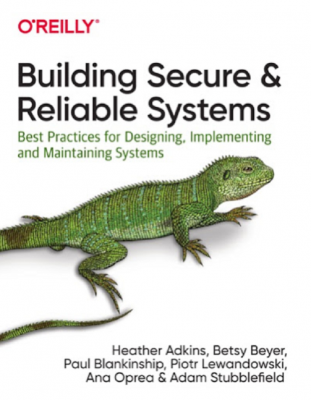
1. Building Secure & Reliable Systems – Various Google professionals have contributed their best practices in this book, which may assist any firm in developing scalable and dependable systems. A roadmap to developing fundamentally secure strategies for an organisation is also included in the book.
2. The Site Reliability Workbook – This book elegantly illustrates the approach for applying SRE ideas as well as their practical applications. The book also includes various case studies and practical examples of Google’s experiences from GCP clients.
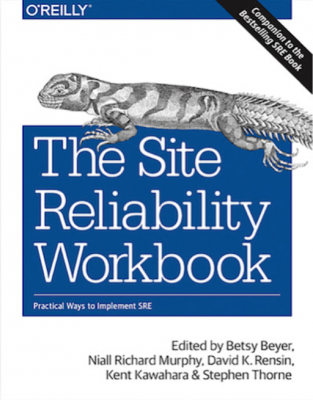
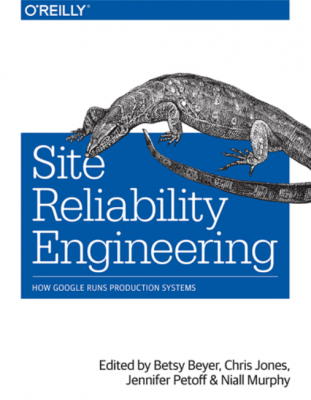
3. Site Reliability Engineering – The members of the SRE team have discussed their involvement with the full software lifecycle in this book. Also, how Google has been able to design, deploy, monitor, and manage the world’s largest software systems as a result of this.
4. Explore Learning Options
Hands-On Practice:
Getting practical experience is the best method to pass any certification exam. GCP encourages participating in hands-on labs accessible on Qwiklabs, as well as the GCP free tier, to improve your cloud platform expertise, just like the GCP DevOps Engineer Exam.
DevOps Essentials – This quest will help you have a better grasp of how to use Google Cloud. You will be able to improve your software delivery capabilities in terms of speed, stability, availability, and security with the support of Google Cloud.
Google Cloud Free Tier – GCP provides you with free materials to help you develop a deeper understanding of Google Cloud services by allowing you to experiment. The Google Cloud Free Tier meets the needs of professionals at all levels, including novices and seasoned experts. The Google Cloud Free Tier is divided into two sections:
- 12-month free trial plus a credit of $300 that may be used with Google Cloud services
- Always Free – It provides limited access to Google Cloud resources, without charging money

Join the Community/ Online Forum:
A healthy debate is always useful, regardless of where it takes place. The same may be said of internet discussion boards. This is a great opportunity for students to talk about their problems and see how their peers are preparing for examinations. One advantage of anything that is available online is the number of individuals who can participate. A small group of individuals can participate in an offline conversation, but online platforms can reach a larger audience. When a large number of individuals get involved in a problem, the chances of finding a solution grow dramatically. In addition, having different points of view makes the structure more lively.
Step 4 – Self-evaluation Time – Practice Test
A practise run or two, regardless of how you prepare for the test, might aid you in more ways than you would think. Taking a Google Professional Cloud Devops Engineer Practice Exam is a terrific way to mix up your study routine and guarantee that you get the best results on the real thing. You may learn about the pattern of questions asked by taking practise tests. Analyzing your answers will help you find areas where you need to focus your efforts and will also reveal if you are on track to meet the exam goals. Start Practising Now!

